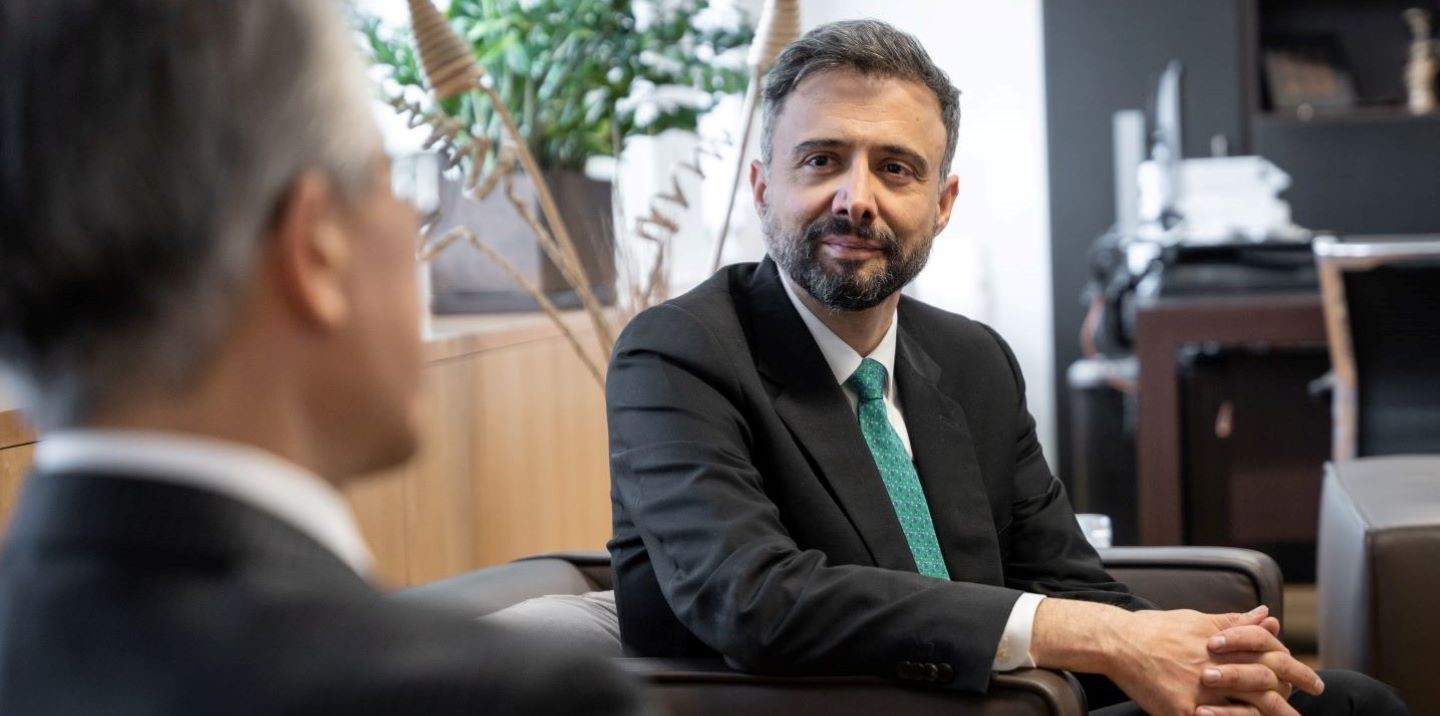IFAD President visits Canada, advocating for greater investment in small-scale farming to alleviate global food crises
IFAD Asset Request Portlet
ناشر الأصول
IFAD President visits Canada, advocating for greater investment in small-scale farming to alleviate global food crises
29 مايو 2023
Rome/Ottawa, 29 May 2023 – Last week G7 leaders made an urgent call for increased support to sustainable and resilient agriculture and food systems in response to a worsening global food crisis. Today, Alvaro Lario, President of the International Fund for Agricultural Development (IFAD) arrives in Canada to advocate on behalf of small-scale farmers and poor rural communities in developing countries, to be better able to boost local food production, adapt to climate change and build solid and reliable regional food supply chains.
As outlined in their Hiroshima Action Statement, G7 leaders identified IFAD as a key player for global food security. They expressed their support to the Fund’s action towards small-scale farmers to strengthen local food production, meet local and regional food demand, build markets and reduce food loss.
“Extreme weather events, loss in biodiversity, economic shocks, rising conflict and debt distress in many countries, lay bare how fragile our food systems really are,” said Lario. “This needs to change. To tackle today’s hunger crisis, feed our planet tomorrow, and avoid recurring food crises in the future, we need to change direction and invest now in rural development and in small-scale farmers in developing countries.”
Small-scale farmers produce one third of the world’s food and up to 70% of the food produced in low- and middle -income countries. They are key to global food security and stability as hunger and poverty can also fuel forced migration and conflict. Yet, they are increasingly impacted by climate change, conflicts and economic volatility.
The quantity of Official Development Aid (ODA) directed at agriculture has been stagnant at 4 to 6% of ODA for at least two decades. Small-scale farmers receive less than 2% of global climate finance, globally.
“Canada is an IFAD member state and a long-standing partner in our efforts to address hunger and poverty, empower rural women, and build resilience to climate change,” said Lario. “We are immensely thankful to Canada for its support, and trust it will rise to today’s extraordinary challenge in feeding a hungry planet sustainably and equitably,” said Lario.
Investments in small-scale farmers, which help them adapt to climate change, implement new practices and access markets, technologies and financial services, can transform the lives of millions of rural women, men and children. Between 2019-2021, IFAD investments raised the incomes of 77.4 million rural people while improving food security for 57 million people.
While in Ottawa, Lario will address the Standing Committees on Foreign Affairs and International Development, and Agriculture and Agri-Food. Also, during his three-day visit, Lario will meet Harjit Sajjan, Minister of International Development, Marie-Claude Bibeau, Minister of Agriculture and Agri-Food Canada, Peter MacDougall, Assistant Deputy Minister for Global Affairs Canada, as well as representatives from the private sector and research institutes. In Montreal on 31 May, Lario will take part in the launch of the IFAD student Club at McGill University and meet with Valérie Orsat, Associate Dean of the Margaret A. Gilliam Institute for Global Food Security.
IFAD and Canada
Canada is a founding member of IFAD, among its top donors and highly engaged in IFAD’s governance. Canada has contributed US$635.7 million to the Fund’s resources, since its inception in 1977. Canada’s development priorities and IFAD’s mandate strongly align on issues such as women’s empowerment, nutrition and climate change.
Thanks to Canada’s support, IFAD has become a leader in rural women’s empowerment with women accounting for 50% of participants in IFAD financed programmes. In 2012, Canada was the first donor to IFAD’s Adaptation for Smallholder Agriculture Programme (ASAP) which helps smallholder farmers build their resilience to climate change. In December 2019, Canada gave a highly concessional CA $340 million loan to IFAD to support climate-smart agriculture programming.
Note to editors:
More information on the IFAD-Canada partnership.
IFAD launched its 13th replenishment in February 2023, calling for increased investments in small-scale, rural farmers across developing countries. For more information visit our IFAD 13 Microsite.
Media contact: Julie Marshall | [email protected] | +1 905 818 2664
Press release No.: IFAD/47/2023
IFAD is an international financial institution and a United Nations specialized agency. Based in Rome – the United Nations food and agriculture hub – IFAD invests in rural people, empowering them to reduce poverty, increase food security, improve nutrition and strengthen resilience. Since 1978, we have provided more than US$24 billion in grants and low-interest loans to fund projects in developing countries.
A wide range of photographs of IFAD’s work in rural communities are available for download from its Image Bank.